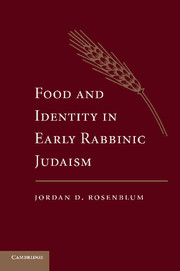Introduction
Published online by Cambridge University Press: 06 July 2010
Summary
On July 11, 1883, Hebrew Union College in Cincinnati, Ohio hosted a banquet to celebrate the ordination of the college's first class of Reform rabbis. The menu for this gourmet feast, later (in)famously known as the “Terefah [nonkosher] Banquet” and greatly mythologized, included four biblically forbidden foods (clams, crabs, shrimp, and frogs). Over a series of elaborate courses, each accompanied with its own wine or spirit, the diners who partook of this feast – and those who stormed out – each made a statement about Reform Judaism's stance on the traditional Jewish dietary laws and, by extension, on its theology in general. The intra- and interdenominational consternation inspired, in part, by the “Terefah Banquet” eventually contributed to the bifurcation of American Judaism that we still see today. More than simply consuming calories, it would appear that the “Terefah Banquet” was about staking a claim on a new Jewish identity.
However, the use of a meal to create social distinctions and to enact and maintain distinct communities is far from a modern phenomenon, both in Judaism and cross-culturally. The early rabbinic (tannaitic) corpus is replete with legislation concerning what and with whom one should or should not eat. The authors of these texts (singular: Tanna; plural: Tannaim) build on earlier precedents and introduce innovative practices regulating commensal interactions. In short, the food on one's plate serves as a social symbol (or sign) that communicates group association and disassociation.
- Type
- Chapter
- Information
- Food and Identity in Early Rabbinic Judaism , pp. 1 - 14Publisher: Cambridge University PressPrint publication year: 2010



